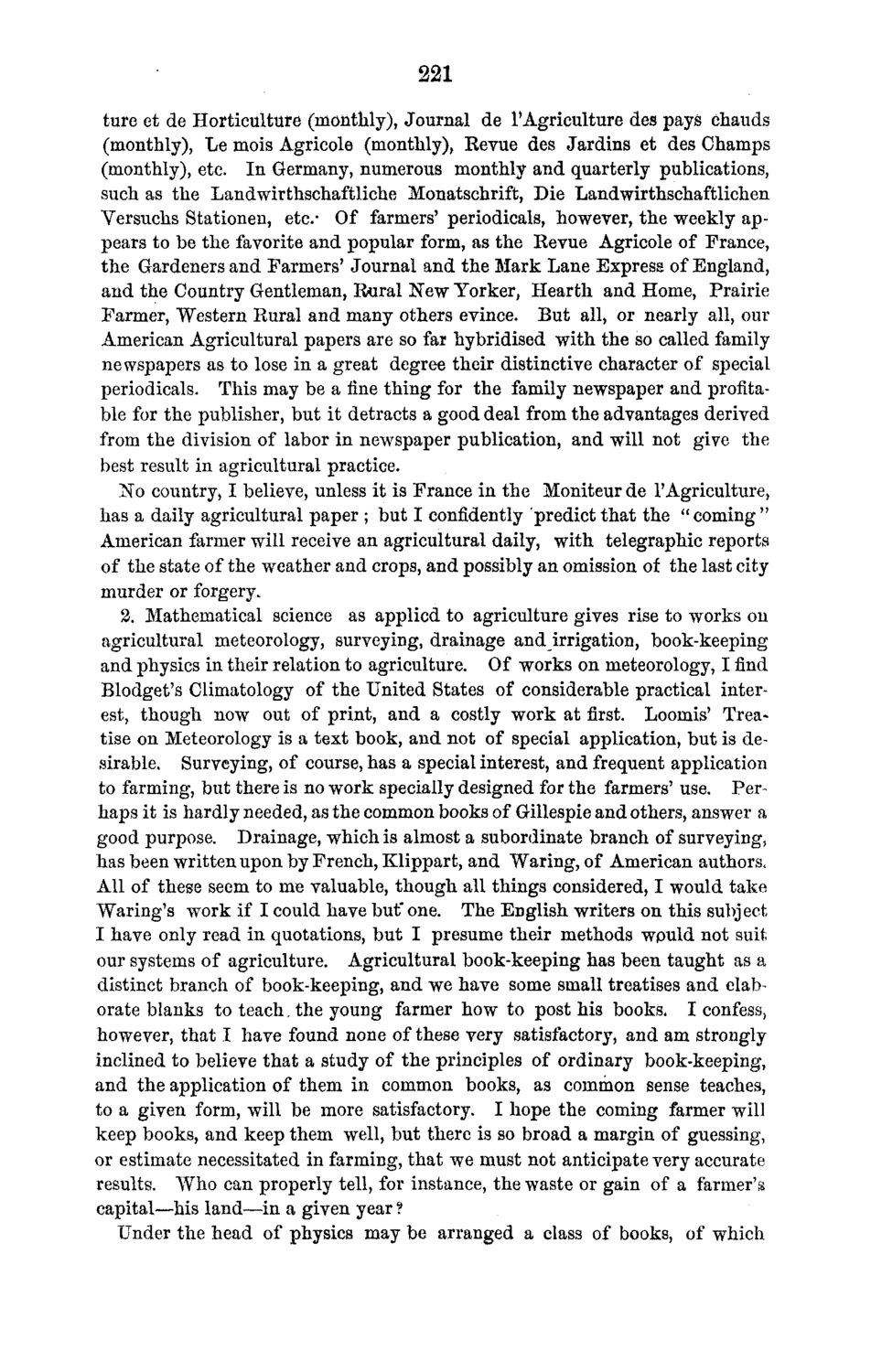| |
| |
Caption: Board of Trustees Minutes - 1870
This is a reduced-resolution page image for fast online browsing.

EXTRACTED TEXT FROM PAGE:
221 ture et de Horticulture (monthly), Journal de 1'Agriculture des pays chauds (monthly), Le mois Agricole (monthly), Revue des Jardins et des Champs (monthly), etc. In Germany, numerous monthly and quarterly publications, such as the Landwirthschaftliche Monatschrift, Die Landwirthschaftlichen Versuchs Stationen, etc.- Of farmers' periodicals, however, the weekly appears to be the favorite and popular form, as the Revue Agricole of France, the Gardeners and Farmers' Journal and the Mark Lane Express of England, and the Country Gentleman, Rural New Yorker, Hearth and Home, Prairie Farmer, Western Rural and many others evince. But all, or nearly all, our American Agricultural papers are so far hybridised with the so called family newspapers as to lose in a great degree their distinctive character of special periodicals. This may be a fine thing for the family newspaper and profitable for the publisher, but it detracts a good deal from the advantages derived from the division of labor in newspaper publication, and will not give the best result in agricultural practice. No country, I believe, unless it is France in the Moniteur de 1'Agriculture, has a daily agricultural paper ; but I confidently predict that the "coming" American farmer will receive an agricultural daily, with telegraphic reports of the state of the weather and crops, and possibly an omission of the last city murder or forgery. 2. Mathematical science as applied to agriculture gives rise to works on agricultural meteorology, surveying, drainage and irrigation, book-keeping and physics in their relation to agriculture. Of works on meteorology, I find Blodget's Climatology of the United States of considerable practical interest, though now out of print, and a costly work at first. Loomis' Trea* tise on Meteorology is a text book, and not of special application, but is desirable. Surveying, of course, has a special interest, and frequent application to farming, but there is no work specially designed for the farmers' use. Perhaps it is hardly needed, as the common books of Gillespie and others, answer a good purpose. Drainage, which is almost a subordinate branch of surveying, has been written upon by French, Klippart, and Waring, of American authors. All of these seem to me valuable, though all things considered, I would take Waring's work if I could have but" one. The English writers on this subject I have only read in quotations, but I presume their methods wpuld not suit our systems of agriculture. Agricultural book-keeping has been taught as a distinct branch of book-keeping, and we have some small treatises and elaborate blanks to teach. the young farmer how to post his books, I confess, however, that I have found none of these very satisfactory, and am strongly inclined to believe that a study of the principles of ordinary book-keeping, and the application of them in common books, as common sense teaches, to a given form, will be more satisfactory. I hope the coming farmer will keep books, and keep them well, but there is so broad a margin of guessing, or estimate necessitated in farming, that we must not anticipate very accurate results. Who can properly tell, for instance, the waste or gain of a farmer's capital—his land—in a given year ? Under the head of physics may be arranged a class of books, of which
| |